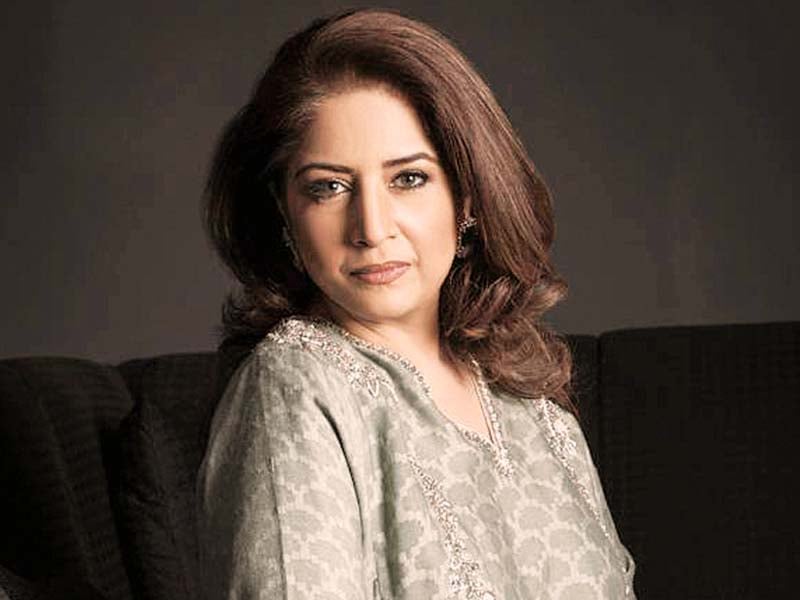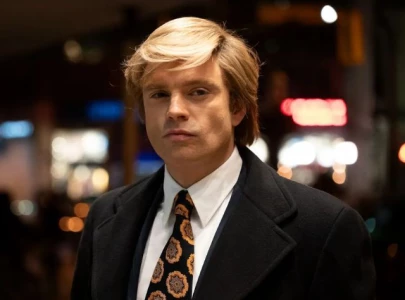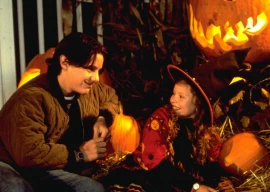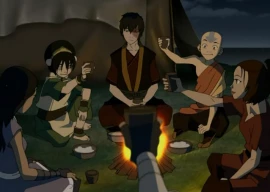
Veteran actor Atiqa Odho has a career spanning over two decades to her credit, which includes several acclaimed titles such as Sitara Aur Mehrunissa and Humsafar. In a recent interview with a local publication, Odho reflected on her early career, as well as the personal struggles she has had to face along the way as a young woman in the industry and beyond.
On her beginnings in the showbiz industry Odho shared, “I started my career as a stylist, so I worked mostly behind the scenes at first doing makeovers for actors. I studied for it in the UK.”
The actor added that her stint behind as a stylist led to several offers to work on the other side of the camera. She said, “When I’d go to ad shoots to prepare models behind the scenes, I would get a lot of offers with people asking me if I would like to be in front of the camera. So, after a while, I thought, “Why not?” I always loved film, fashion and the arts, so I made the decision to take the plunge.”
Odho explained that while she loved the idea of acting, she was also in need of financial stability, which further motivated the actor to take up the offers. “By that time, I already had two children and I was going through a divorce, so I needed the money as well. People often hide the difficult parts of their life behind a facade, but I very openly talk about them. Styling wasn’t getting me the money I needed to raise two children, so I started going in front of the camera. The first ad I did was for a tea company. That’s where Anwar sahab spotted me and offered me Siatara Aur Mehrunnisa,” she revealed.
According to the actor, the fact that her family was familiar with Anwar Maqsood, who penned Sitara Aur Mehrunissa, made it a relatively smooth transition, despite her family’s resistance to the world of showbiz. “Anwar sahab and my father used to play bridge together, so there was history there. I didn’t know him as a little girl, because the bridge sessions would happen at clubs and other venues, but he knew the family and the family knew him. So, for my parents and family, it was acceptable because they knew him. We weren’t a television family, so there was some resistance given the unfamiliar territory.”
Odho shared that her love for cinema is what led to her entering the world of film. She explained, “My family and the fraternity discouraged me from crossing over into film. There was a big divide between cinema and the small screen. I thought that was so sad because I always felt that if you’re treating something as an underdog then it’s your responsibility to try and better it. So, I made a very clear decision, that regardless of the outcome, I’d do film because I loved cinema. And I’m so happy I made that move because of the people I’ve met because of it. They gave me so much love. So I became kind of like an ambassador for cinema.”
The actor shared advice for young women in the industry and beyond, asserting that women should learn to trust their gut. “To the young women, according to my experience, so many people have told me no and that such and such cannot be done. You hear such things a lot when you’re a young woman. Always follow your instinct, because your instinct will always make the right choice. That’s what I always did.”
She added further, “I would assess whether something posed any danger to me and if I didn’t feel threatened or that I wouldn’t need to compromise on something, I’d go forward with it. But when I felt like that was the case, I would fight like a lion. Because when you’re a young woman, there are a lot of challenges and a lot of people who want to be a part of your life, so you have to protect yourself. That doesn’t mean you retreat into a bubble and refuse to face the world.”
Odho, who has been divorced twice in the past, reflected on her upbringing in an unstable environment. “I made decisions that were okay at the time but didn’t work out in the long run. I was married at a very young age out of choice. I came from a broken home. An upper class, elite, but broken home, and I was always very starved for a father figure. I understood this later on,” she shared.
Explaining how she doesn’t believe in imposing expiry dates on experiences, Odho added further, “I married young and had children young, I went to school after kids. I did a lot of catching up in my life. I realised that I did all of these things because of childhood trauma or emotional needs, I understood it, so I needed to fix it. You can fix anything at any time. This timeframe is your own construct. No one is putting a timeline on your life.”
Extending advice to women in abusive relationships, Odho stressed the importance of valuing nothing else over the safety and wellbeing of yourself and your children. “If you are in an abusive relationship, you shouldn’t be in it regardless of the situation. If God has given you functioning limbs and intelligence, and if you can earn by sweeping floors even, which is an equally dignified form of labour, it’s better than being in an abusive relationship. No home with abuse is a stable home. Find a way to get out,” she said.
“I had a supportive family, my children were my greatest strength. So many people say to me that children can’t do anything, but for me, my children were my biggest support. They stood by me through everything. The only thing I cared about was keeping myself and my children safe. Everything else is irrelevant. Society has nothing to do with it. Society doesn’t raise your kids or save you when someone is hurting you. No one comes to your door, so who are you pleasing? This society is not worth it. I have the right to live a happy, comfortable life. My children have the right to a stable, normal existence.”

1722421515-0/BeFunky-collage-(19)1722421515-0-165x106.webp)



-(1)1730443275-0/Copy-of-Untitled-(60)-(1)1730443275-0-270x192.webp)

1730095495-1/WhatsApp-Image-2024-10-28-at-11-04-18-(1)1730095495-1-270x192.webp)









COMMENTS (1)
Comments are moderated and generally will be posted if they are on-topic and not abusive.
For more information, please see our Comments FAQ